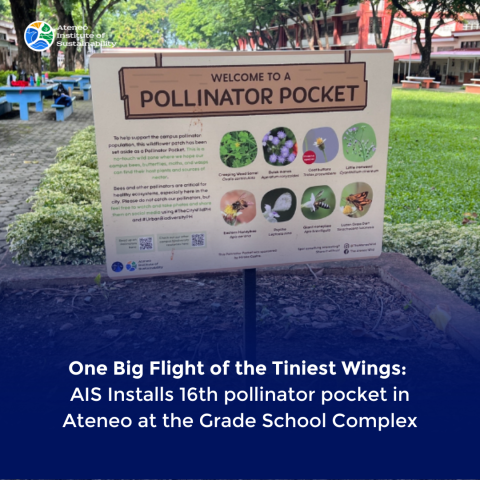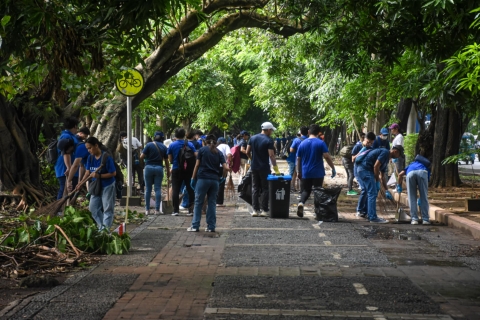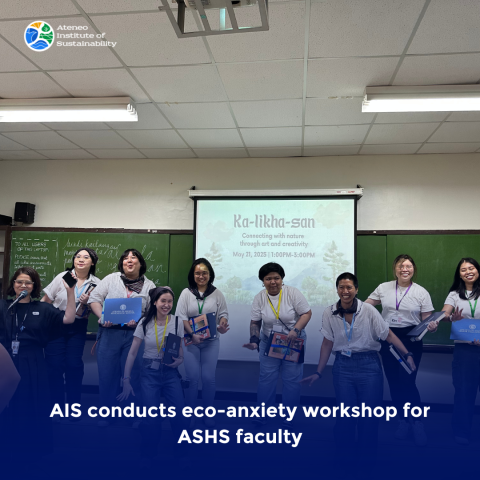AIS and MAD Travel pilot participatory climate simulation workshop
20 Sep 2024 | By Ivy Geraldine Ferrer
This September, as we celebrate the Season of Creation, the Ateneo Institute of Sustainability engaged different stakeholders from the university in a dynamic activity on what it means to be caring stewards of our common home. On 11 September 2024, the Ateneo Institute of Sustainability, in collaboration with Make a Difference (MAD) Travel, piloted the workshop “Race to Zero: Transitions for a Low Carbon Economy.” The event gathered participants from the academe and private sector, to actively engage with an interactive simulation tool designed to explore different climate change scenarios. Facilitated by MAD Travel co-founder, Mr Rafael Dionisio, the workshop encouraged collaborative efforts to test real-time outcomes based on policy decisions, through a simulated negotiation process to mimic the climate negotiation talks at the annual Conference of the Parties (COP).
The centerpiece of the event was the En-ROADS Climate Change Simulator, developed by MIT Sloan Sustainability Initiative in collaboration with Climate Interactive. This tool allows policymakers, educators, business leaders, and other stakeholders to explore the effects of various climate strategies, such as subsidizing renewable energy, carbon pricing, electrification of transportation, buildings, and industry, and reducing agricultural emissions. By simulating the outcomes of diverse policy choices, En-ROADS provides a dynamic visualization of how these actions can influence factors like energy prices, global temperatures, and overall climate impact. The workshop served as a platform to promote informed decision-making in the transition to a low-carbon future.
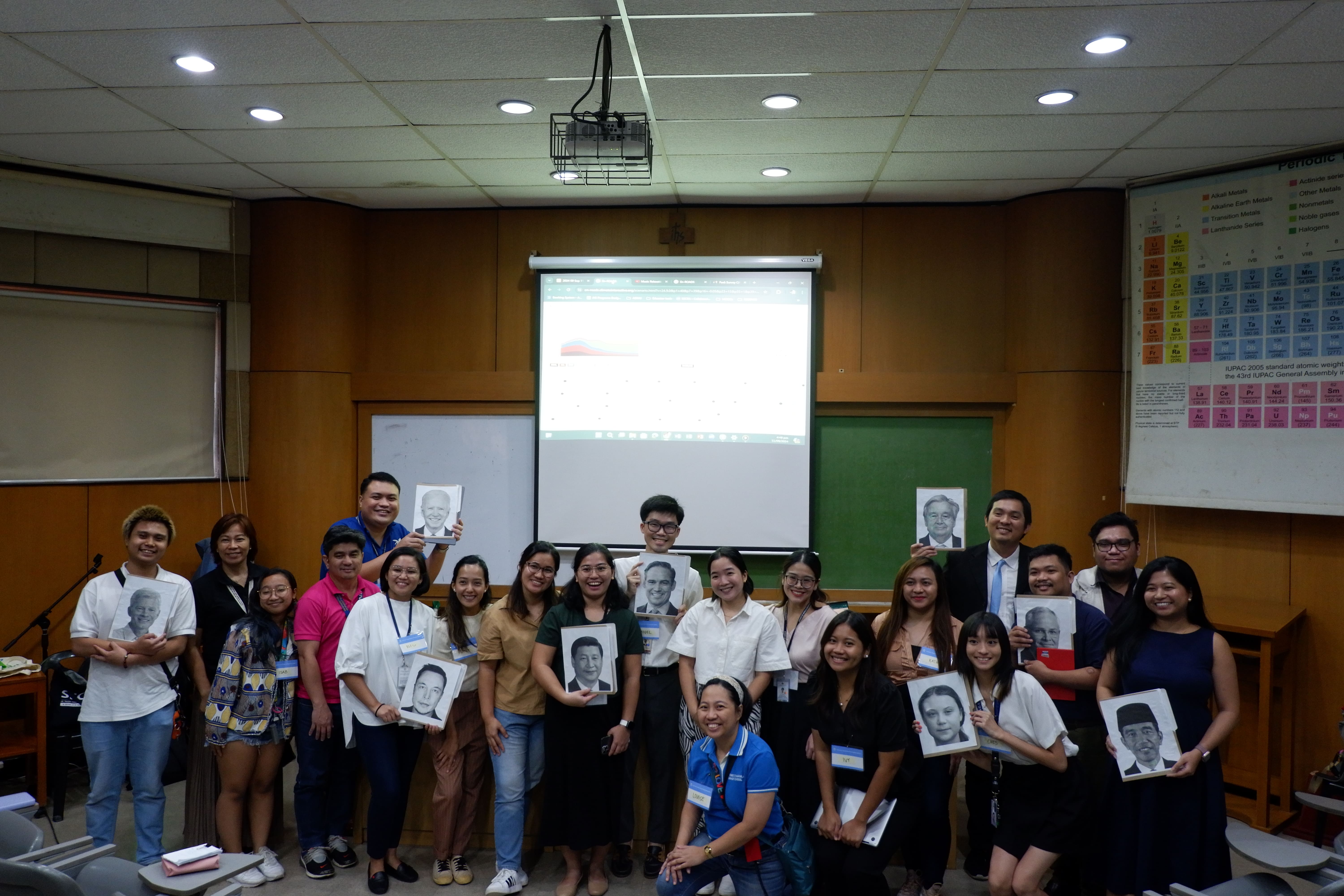
The training session began with an introduction to MAD Travel, a platform focused on education, environmental restoration, and supporting local economies to drive sustainable development. Following this, the participants were given an overview of the En-ROADS model, highlighting its purpose, key variables, and role in exploring climate change scenarios. The attendees were then divided into groups, each representing different global sectors and negotiating blocs from the COP process, such as developed countries, rapidly emerging countries, developing nations, clean energy, commerce, agriculture, youth groups, and conventional energy industries. Their task was to negotiate and collaborate using the simulation tool to limit global temperature rise to +1.6°C by 2100, by roleplaying the interests of each bloc of actors and referencing a brief on what policies they would and would not support. Framed within the context of the climate crisis, participants were challenged to embody their roles regardless of their personal views, simultaneously an exercise in empathy but also in reflection of the urgency to curb emissions and care for the planet.
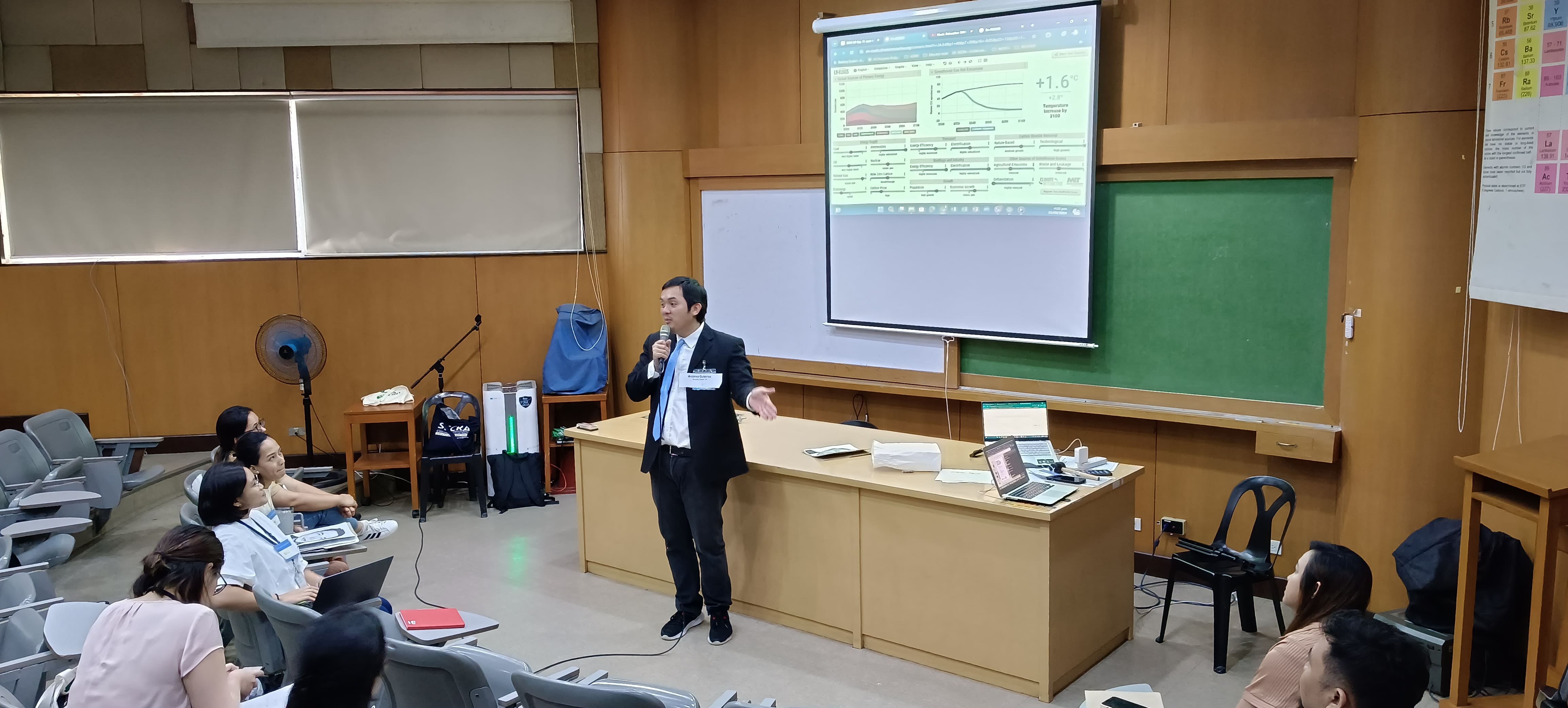
Participants actively engaged in discussions, applying critical analysis as they explored how decisions in one sector impacted others. The simulation underscores the complex interactions required to achieve climate mitigation goals. Many found the En-ROADS tool highly promising in illustrating how key decision-makers can work together to combat climate change, but also how vested interests might affect negotiations and progress on climate action. Moreover, participants indicated that they could apply the insights gained from the workshop to their respective contexts, creating a solutions-driven approach in addressing climate change issues.
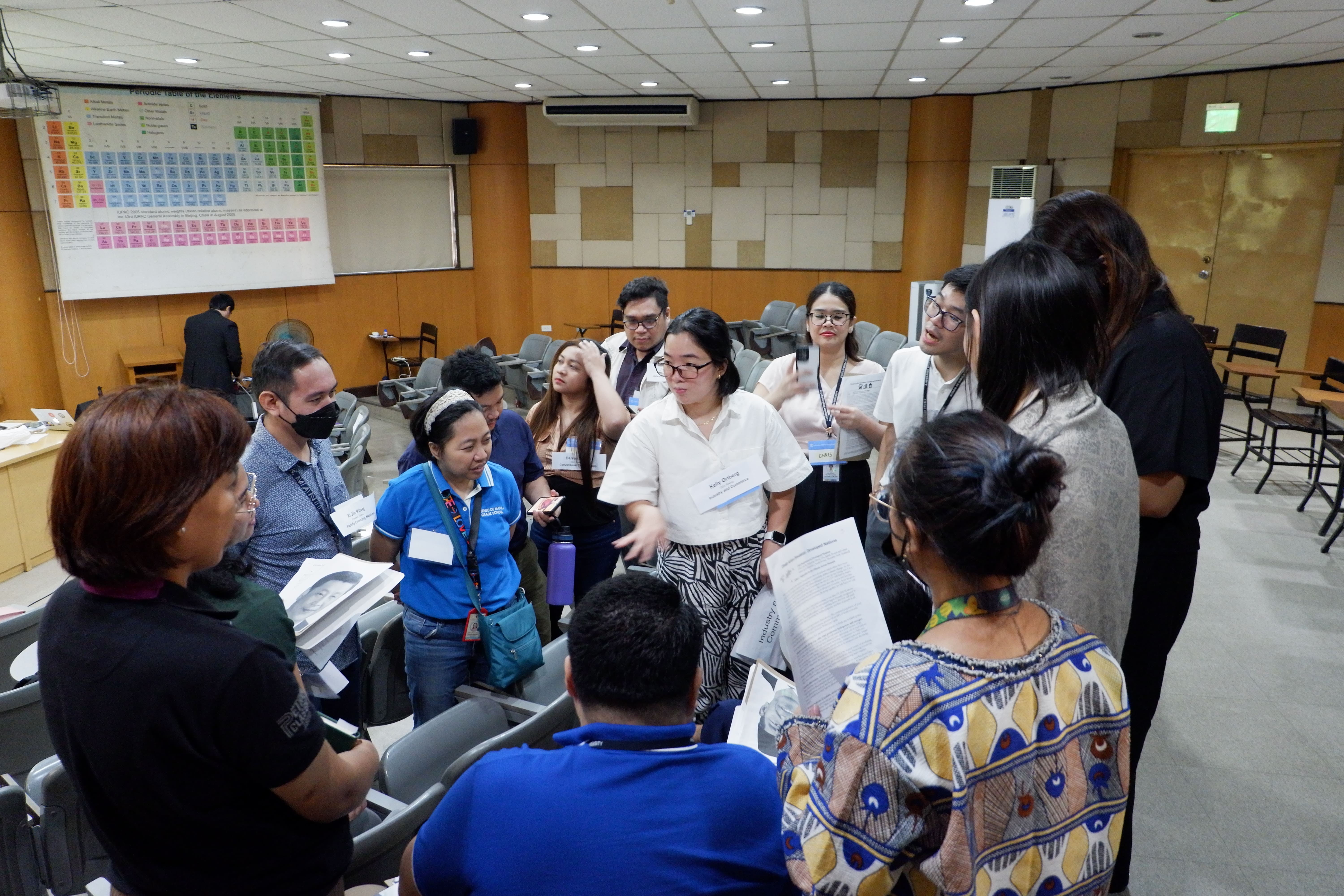
AIS will offer and host additional workshops for the community in the coming months. To stay up to date on such offerings, kindly refer to AIS’ interest check on public trainings and workshops HERE.







